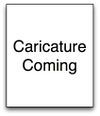Dave Crocker
 |
 |
| Country: | USA |
| Email: | dcrocker[at]bbiw.net |
| Website: | |
| Facebook: | |
| LinkedIn: |
David H. Crocker is a Senior Advisor of the Messaging Anti-Abuse Working Group, a member of the IETF, and self-employed working under the company name Brandenburg InternetWorking. He designs network-based applications businesses and system architectures.[1] He has forty years of work experience in the Internet industry, including early work with DARPA and designing the basis for today's email system.
He is currently a member of the IETF's administrative and legal oversight bodies (IAOC/Trust).[2] He is also a Member of Association of Computing Machinery, Institute of Electrical & Electronic Engineers, and ISOC.[3]
Mr. Crocker is well-known for his work on RFC 822, which was the first standard to describe the syntax of a domain name. He is the brother of Steve Crocker, who is also well known in the Internet Industry for his pioneering work, such as creating the RFC series.
Career History edit
He has been an Advisor at Goodmail Systems and is the Co-Founder of Portola Software. Mr Crocker has recently served as an Engineer at Silicon Graphics. He has also held the position of Director at Digital Equipment Corporation.[4]
From 1989 to 1991, he worked as the Manager of Network Systems Laboratory, Digital Equipment Corp. Prior to which, he was the Vice President of Engineering at The Wollongong Group, Inc. He has also held the position of Development Manager at Ungermann-Bass, Inc. and has worked as the Director of System Development at MCI Digital Information Services Corp. He started his career working as the Co-Principal Investigator, Electrical Engineering at University of Delaware.[5][6]
In the 1970's he worked with the ARPA network research community.[7]
Work with the Internet edit
He has been the Area director for the IETF from 1989-1993. He participated in the effort to standardize facsimile, and electronic data exchange over the Internet. He chaired the Silicon Valley–Public Access Link, of which he is still a board member.[8]
For almost 40 years he designed and prepared Internet standards. He has also contributed to work on Internet commerce, domain name service, emergency services, and TCP/IP enhancements.[9] He was one of Jon Postel's appointees to the IAHC.[10] He has also taught several classes on Internet, TCP/IP and Open Systems Networking.
Email edit
Mr. Crocker is often reffered as one of the inventors and designers of E-mail. He developed MS, based on the design of MSG, which was the first modern Email sender program. MS was designed for UNIX operating system. The idea was initiated by Steve Walker, who was then the Program Manager at DAPRA. While Dave Farber managed the overall work for the program, Mr. Crocker designed the functional specifications and Steve Tepper and Bill Crosby did the programming.
In 1977, Mr. Crocker, John Vittal, Kenneth Pogran, and Austin Henderson worked together on a DARPA initiative that was meant to collect various email data formats into a single, coherent specification. The result of there work was RFC 733. In 1982, Dave revised RFC 733 and prepared RFC 822, which was the first standard to describe the syntax of domain names.
In 1978, Mr. Crocker was once again with Dave Farber at the University of Delaware; they developed the first versions of what would become the Multi-purpose Memo Distribution Facility (MMDF). This project was for the U.S. Army Materiel Command.[11] He has developed two national email services and designed two others.[12]
Meetings edit
Mr. Crocker actively participates in meetings in the Internet industry. He has chaired and presented at several conferences, including:
- N+I Interop
- Electronic Messaging Association
- APRICOT '06, '05, '04, '99
- RIPE, Edinburgh [13]
- EMail World
- Unix Expo
- FTC email authentication conference in 2004.[14]
Publications edit
He is the author of book chapters, magazine articles, presentations and specifications on open systems networking, standards, electronic mail and electronic commerce. A complete list of his presentations and publications can be read here.
Awards and Honors edit
In 2004, he got the IEEE Internet Award.[15]
Education edit
- Ph.D in Computer Science from University of Delaware (1978-1982)
- M.A in Communication from Annenberg School, USC (1977)
- B.A in Psychology from UCLA in (1975)
External Links edit
- The Debate Over Internet Governance: A Snapshot in the Year 2000
- Dave Crocker on CircleID
- IETF Outcomes: An interview with Dave Crocker
- Carl Malamud interviews Dave Crocker
- Reviewing the Internet's Future by Prognosticating Its Past - Dave Crocker-1
- Reviewing the Internet's Future by Prognosticating Its Past - Dave Crocker-2
- Reviewing the Internet's Future by Prognosticating Its Past - Dave Crocker-3
- Reviewing the Internet's Future by Prognosticating Its Past - Dave Crocker-4
- Reviewing the Internet's Future by Prognosticating Its Past - Dave Crocker-5
- Reviewing the Internet's Future by Prognosticating Its Past - Dave Crocker-6
- Reviewing the Internet's Future by Prognosticating Its Past - Dave Crocker-7
- Reviewing the Internet's Future by Prognosticating Its Past - Dave Crocker-8